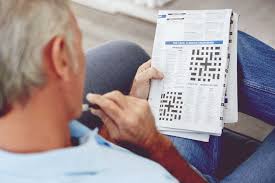 Some people believe that the loss of memory and other mental functions is a normal and unavoidable part of aging. It is important to understand what is normal and what is not, and what can be done to help your family member maintain an active mind and a healthy outlook. Some changes in the brain and nervous system are normal with aging. For example:
Some people believe that the loss of memory and other mental functions is a normal and unavoidable part of aging. It is important to understand what is normal and what is not, and what can be done to help your family member maintain an active mind and a healthy outlook. Some changes in the brain and nervous system are normal with aging. For example:
Slower nerve response means that the person needs a little longer time to go about everyday activities. Allow enough time for older persons to get things done without rushing them, and don’t appear impatient with them.
Changes in sleep patterns are common. Often the older person’s normal sleep is less deep, causing them to feel like they did not sleep well. Naps can be helpful in providing the needed rest.
Changes in short-term memory can occur. A slower memory is normal and should not be a cause of worry unless it becomes severe and disrupts daily activities. Just allow a little longer time for your loved one to remember things and reply with the information needed to answer you.
An active mind at any age is healthy. There are steps you can take to help your older family members keep their minds active.
Encourage them to read, and make sure reading materials are available to them. You can subscribe to the newspaper or magazines that interest them. If their eyesight is a problem, purchase large print books or check them out at your local library. Or try getting books on audio. And for a more personal touch, try reading to your family member.
Help your elderly family members keep involved in daily activities. Rather than doing everything for them, encourage them to continue managing their finances, if they are capable of doing so.
They can help open the daily mail, help keep track of bills, and sign their own checks as long as they are able. And make them feel needed by asking for their opinions, advice, and suggestions about a variety of topics. Remember, the more you encourage and let them do for themselves, the more likely they will stay alert and capable.
Some people find comfort and fun with pets. Pets can both give and receive affections. Consider a pet if your family member shows interest. Ask the person what pet might interest them. Consider a “low maintenance” animal, like a cat or bird. If an enclosed yard is available, a dog might also be a good choice.
Maintain a pleasant, stimulating environment. Consider having some sturdy, easy-care plants in the house, place a comfortable chair near a window, and hang a bird feeder to attract colorful birds to watch. Plan some daily outdoor activities such as taking a short walk or going for a drive in the car. Encourage sitting on a porch or balcony to “people watch” or read the newspaper.
Encourage visitors. Visitors keep a person connected to the outside world. Visitors can help entertain by playing games like cards, Scrabble, and Dominoes. Visitors can also assist in letter writing, listen to the person reminisce, work with the person on a new hobby, or play instruments or sing. Many times a visit with a child or pet adds youthful excitement to the day.
Maintaining an active mind supports safety and independence by keeping people more alert and interested in their surroundings. While many people do slow down some as a normal consequence of aging, most people keep their mental capacities throughout their lives.

0 Comments